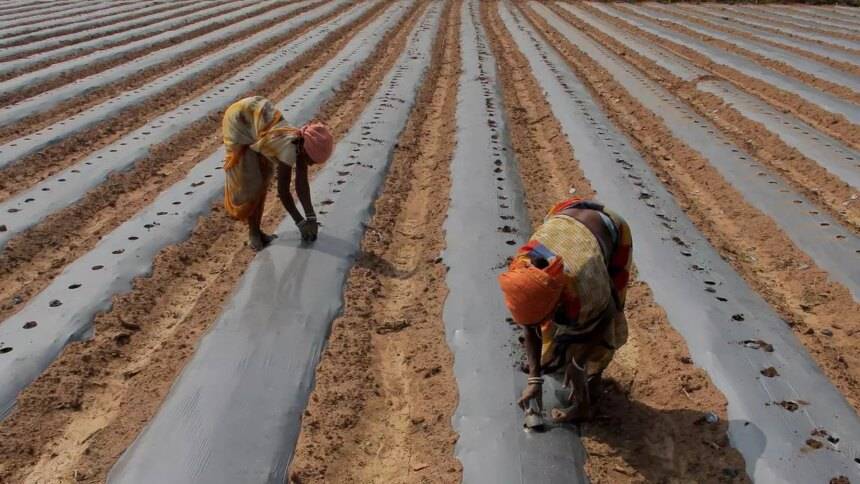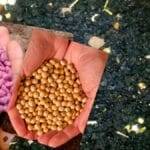Main Points In Hindi (मुख्य बातें – हिंदी में)
यहां पर दिए गए लेख के मुख्य बिंदु निम्नलिखित हैं:
-
सरकार से अनुरोध: सॉल्वेंट एक्सट्रैक्टर्स एसोसिएशन ऑफ इंडिया (SEA) ने सरकार से रेपसीड मील के निर्यात को बढ़ावा देने और किसानों को समर्थन देने के लिए मदद मांगी है। इसके साथ ही उन्होंने सरसों के लिए न्यूनतम समर्थन मूल्य (MSP) बनाए रखने का आग्रह किया है।
-
बीज की कीमतों में कमी: SEA के अध्यक्ष संजीव अस्थाना ने बताया कि घरेलू कीमतें 6,200-6,300 रुपये प्रति क्विंटल के आसपास मँडरा रही हैं और एमएसपी 5,950 रुपये प्रति क्विंटल से नीचे जाने की संभावना है, जिससे किसानों को नुकसान हो सकता है।
-
रेपसीड मील का निर्यात: समस्या यह है कि 2024-25 के पहले सात महीनों में रेपसीड मील का निर्यात 22 प्रतिशत गिर गया है, जिससे किसानों की आय पर विपरीत प्रभाव पड़ने की संभावना है।
-
अंतरराष्ट्रीय बाजार में प्रतिस्पर्धा: ऊंची कीमतों के कारण, अंतरराष्ट्रीय बाजार में रेपसीड मील की मांग घटी है। सोयाबीन भोजन की अधिकता भी इस स्थिति का एक कारण है, जिससे सभी तेल भोजन की कीमतों पर दबाव पड़ा है।
- आवश्यक कदम: SEA ने सरकार से मांग की है कि प्रतिस्पर्धात्मक बनाने के लिए रेपसीड भोजन के निर्यात पर प्रोत्साहन दिया जाए ताकि घरेलू कीमतें MSP से ऊपर बनी रहें और खाद्य तेलों की उपलब्धता में सुधार हो सके।
Main Points In English(मुख्य बातें – अंग्रेज़ी में)
Here are the main points from the article concerning the Solvent Extractors Association of India (SEA) and its appeal for government support for mustard farmers:


-
Call for Support on Exports: The SEA has urged the government to promote the export of rapeseed meal and maintain the Minimum Support Price (MSP) for mustard seeds to support farmers amid fluctuating domestic prices.
-
Concerns about Domestic Prices: Current domestic prices for mustard seeds hover around ₹6,200-6,300 per quintal. There are fears that without support for export, these prices could fall below the MSP of ₹5,950 per quintal, affecting government efforts to stabilize market prices and complicating the current sowing season.
-
Export Decline and Challenges: India has faced a significant reduction in rapeseed meal exports, dropping from 1.51 million tons last year to an estimated 1.18 million tons this year. This decline is partially due to higher international prices and increased global soybean meal supply.
-
Impact of Market Conditions: Favorable weather conditions may lead to a bumper harvest of more than 13 million tons, but challenges remain regarding the disposal of rapeseed meal. Low prices for alternative animal feed sources, such as maize DDGS and de-oiled rice bran, are impacting domestic demand for rapeseed meal.
- Request for Government Action: The SEA has called for government intervention to improve the competitiveness of rapeseed meal exports through measures such as higher rates of duty drawback, freight subsidies, and export incentives to ensure that domestic prices remain above the MSP and stabilize the market for oilseeds.
Complete News In Hindi(पूरी खबर – हिंदी में)
सॉल्वेंट एक्सट्रैक्टर्स एसोसिएशन ऑफ इंडिया (SEA) किसानों को समर्थन देने के लिए रेपसीड मील के निर्यात को बढ़ावा देने और रेपसीड-सरसों के लिए एमएसपी (न्यूनतम समर्थन मूल्य) बनाए रखने के लिए सरकार से मदद मांगी है।
केंद्र सरकार में विभिन्न मंत्रियों को दिए एक ज्ञापन में, एसईए अध्यक्ष, संजीव अस्थाना ने कहा कि सरसों के बीज की घरेलू कीमतें वर्तमान में रेपसीड मील निर्यात के लिए मजबूत समर्थन के बिना 6,200-6,300 रुपये प्रति क्विंटल के आसपास मँडरा रही हैं।
उद्योग के अनुमानों का हवाला देते हुए उन्होंने कहा कि इस बात की अच्छी संभावना है कि बीज की कीमतें जल्द ही एमएसपी 5,950 रुपये प्रति क्विंटल से नीचे आ जाएंगी। उन्होंने कहा, “इससे सरसों के बीज की बाजार कीमतों को एमएसपी से ऊपर रखने के सरकारी प्रयास को नुकसान हो सकता है और सरसों की फसल की मौजूदा बुआई में व्यवधान पैदा हो सकता है।”
नइ चुनौतियां
भारत लंबे समय से अंतरराष्ट्रीय बाजार में एक आवश्यक पशु आहार घटक के रूप में रेपसीड खली का प्रमुख निर्यातक रहा है, और इसने 2023-24 में लगभग 2.2 मिलियन टन (एमटी) रेपसीड खली का निर्यात किया, जिससे किसानों को उनके लिए बेहतर कीमतें प्रदान करके महत्वपूर्ण सहायता प्रदान की गई। उत्पादन करना।
यह कहते हुए कि यह वर्ष नई चुनौतियाँ प्रस्तुत करता है, उन्होंने कहा कि रेपसीड मील निर्यात अप्रैल-अक्टूबर 2023-24 में 1.51 मिलियन टन से घटकर अप्रैल-अक्टूबर 2024-25 के दौरान 1.18 मिलियन टन हो गया है।
इस कमी के लिए अंतरराष्ट्रीय बाजार में ऊंची कीमत को जिम्मेदार ठहराते हुए उन्होंने कहा कि रेपसीड मील (एक्स-हैम्बर्ग) की कीमत फिलहाल 283 डॉलर प्रति टन है, जो भारतीय कीमतों से 40-50 डॉलर प्रति टन कम है।
विश्व स्तर पर सोयाबीन भोजन की बहुतायत इस मुद्दे में योगदान दे रही है, वैश्विक सोयाबीन उत्पादन लगभग 28 मिलियन टन तक बढ़कर 422 मिलियन टन तक पहुंच गया है। उन्होंने कहा कि भोजन और ऊर्जा के लिए सोयाबीन तेल की बढ़ती मांग ने पेराई गतिविधियों को प्रेरित किया है, जिसके परिणामस्वरूप सोयाबीन भोजन की अधिक आपूर्ति हुई है, जिसके परिणामस्वरूप रेपसीड भोजन सहित सभी तेल भोजन की कीमतों पर दबाव पड़ा है।
किसी मुद्दे का निपटारा करें
अनुकूल मानसून, बेहतर मिट्टी की नमी और मजबूत जलाशय जल स्तर के कारण किसानों को रेपसीड और सरसों के रोपण क्षेत्र का विस्तार करने के लिए प्रोत्साहित किया गया है। “अगर मौसम की स्थिति अनुकूल रही, तो हम 13 मिलियन टन से अधिक की बंपर फसल की उम्मीद करते हैं। हालांकि यह एक आशाजनक विकास है, लेकिन यह एक चुनौती भी पेश करता है: संभावित रिकॉर्ड-तोड़ फसल के बावजूद, रेपसीड भोजन का निपटान एक महत्वपूर्ण मुद्दा बना हुआ है, ”अस्थाना ने कहा।
इसके अलावा, मक्का डीडीजीएस की बहुत कम कीमतें (एथेनॉल के लगातार बढ़ते उत्पादन के कारण) और राइसब्रान डी-ऑयल मील की असामान्य रूप से कम कीमतें (राइसब्रान मील/डी-ऑयल राइसब्रान पर निर्यात प्रतिबंध के कारण) रेपसीड की घरेलू मांग की जगह ले रही हैं। आहार निर्माण में भोजन (मवेशी और मुर्गी)।
“बाज़ार की स्थिरता सुनिश्चित करने के लिए, हमें इस वर्ष कम से कम 2.5 मिलियन टन रेपसीड मील का निर्यात करने की आवश्यकता है। हालाँकि, वित्तीय वर्ष 2024-25 के पहले सात महीनों में मौजूदा निर्यात में पहले से ही 22 प्रतिशत की गिरावट आई है, तत्काल समर्थन की आवश्यकता है, ”उन्होंने कहा।
घरेलू स्तर पर सरसों की खली की खराब कीमत परिदृश्य को ध्यान में रखते हुए, एसईए ज्ञापन ने सरकार से मक्का डीडीजीएस (सूखे डिस्टिलर अनाज ठोस) और डी-ऑयल राइसब्रान (निर्यात की अनुमति देकर) की प्रचुरता को कम करने के लिए उचित कार्रवाई करने का अनुरोध किया।
उन्होंने निर्यात को प्रतिस्पर्धी बनाने के लिए उच्च RoDTEP (निर्यातित उत्पादों पर शुल्क और करों में छूट) दरों, माल ढुलाई सब्सिडी, ब्याज दर में छूट के माध्यम से रेपसीड भोजन के लिए कम से कम 15 प्रतिशत के निर्यात प्रोत्साहन का भी अनुरोध किया।
अस्थाना ने ज्ञापन में कहा, “यह सुनिश्चित करने के लिए है कि घरेलू कीमतें रेपसीड/सरसों के लिए एमएसपी से ऊपर रहें और खाद्य तेलों की उपलब्धता बढ़ाने के लिए पेराई समता बनी रहे।”
Complete News In English(पूरी खबर – अंग्रेज़ी में)
The Solvent Extractors Association of India (SEA) is requesting government support to boost exports of rapeseed meal and to maintain the minimum support price (MSP) for mustard seeds. In a memorandum addressed to various ministers, SEA President Sanjeev Asthana highlighted that domestic prices for mustard seeds are currently hovering around ₹6,200-6,300 per quintal, which may drop below the MSP of ₹5,950 per quintal without strong support for rapeseed meal exports. This decline could hinder government efforts to keep mustard seed prices above the MSP and disrupt the current sowing season.
India has long been a leading exporter of rapeseed meal, with an estimated export of around 2.2 million tons in the 2023-24 period, significantly benefiting farmers. However, Asthana noted that the current year presents new challenges, with exports dropping from 1.51 million tons during April-October 2023-24 to 1.18 million tons in the same period for 2024-25. He attributed this decline to high international prices, currently around $283 per ton for rapeseed meal, which is $40-50 less than Indian prices.


The abundant supply of soybean meal globally, driven by rising production reaching about 422 million tons, is also pressuring the prices of all oil meals, including rapeseed meal. Despite favorable monsoon conditions encouraging farmers to expand planting areas, a potential record harvest poses a challenge in managing rapeseed meal disposal.
Moreover, the low prices for maize DDGS (a byproduct of ethanol production) and the unusually low prices for de-oiled rice bran (due to export restrictions) are affecting domestic demand for rapeseed meal in animal feed. To stabilize the market, the SEA calls for exporting at least 2.5 million tons of rapeseed meal this year, despite a 22% drop in exports so far in FY 2024-25.
The SEA memorandum urges the government to take measures to address the oversupply of maize DDGS and de-oiled rice bran and asks for export incentives for rapeseed meal, including higher RoDTEP rates, freight subsidies, and interest rate cuts. Asthana emphasized the importance of keeping domestic prices above MSP and ensuring a stable supply of edible oils.
Source link








